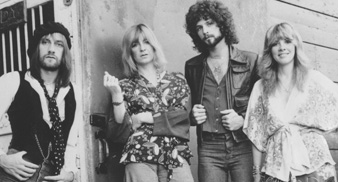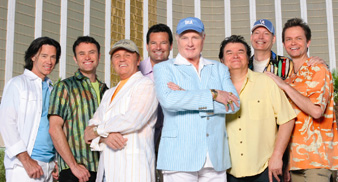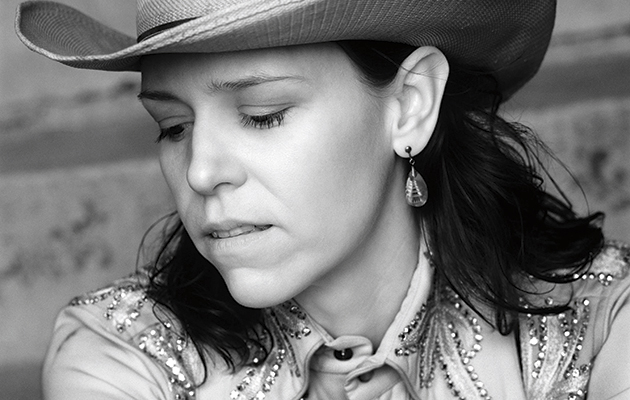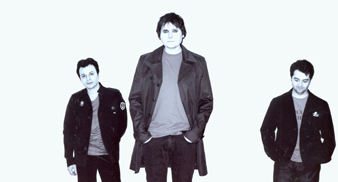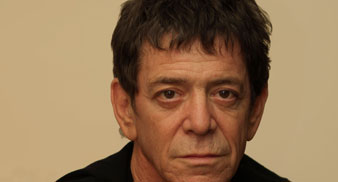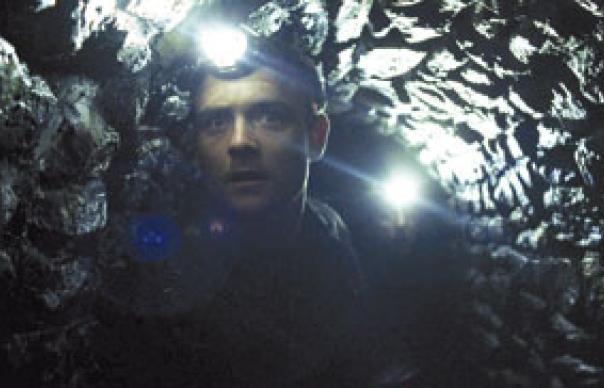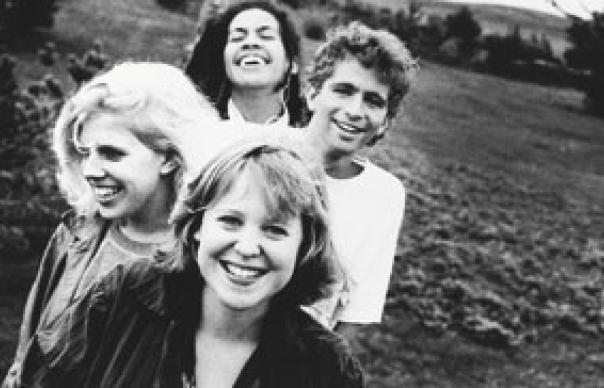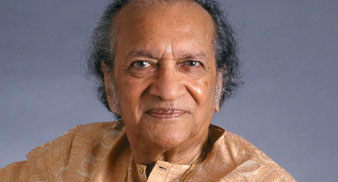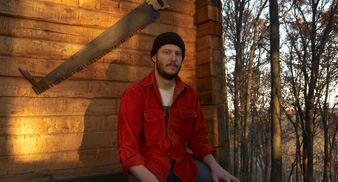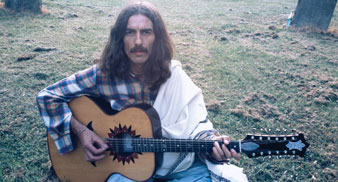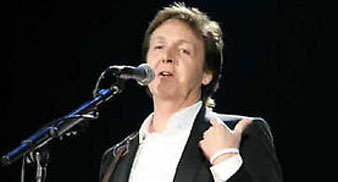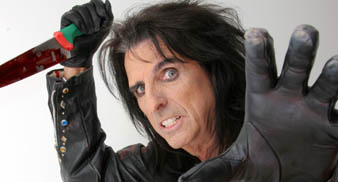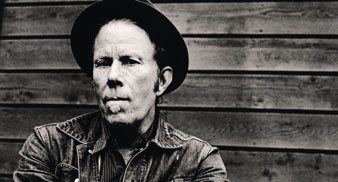This is the second part of a lengthy piece I wrote for Uncut earlier this summer. The first part is here.
“Until a song is right,” says Welch, “Dave and I basically exist in a state of misery, and a constant – I mean a never-ending – process of problem-solving. It’s one of the things that I don’t see in our peers. We’ll leave no stone unturned and we will go to the very last millisecond. I love to hear that other people are that crazy, because we are. So when I heard that Peter Jackson was still editing one of the Lord Of The Rings movies until the last moment, that warms my heart. We have done that. I’ve thrown Dave the car keys and we have raced to Fed Ex with the masters, because we were working to the last second we had.”
It seems strange that a record conceived over eight years should be so rushed, but Welch has an explanation. “It’s not as if we were working on this record for eight years. This is a record of the stripe that I like. I love to hear that someone made a record in a consolidated length of time and that it represents a focused moment, a focused look at their mind and what they were thinking.
“This record was written basically in about four months between October and January, and recorded in February here. There’s one really old song – ‘The Way It Will Be’ – that we always had in our head as the beginning of this record.”
Which was written in 2004.
She laughs. “And then we never wrote anything that went with it that we liked. Any number of people would have put out three, four records in this span, and we could have too. There were songs. We did stuff. We didn’t stop. But we were usually were too pissed off with stuff to even record it. We have a very similar inner compass that we can’t lie to or fool for very long.”
That’s mind-bending patience.
“It is mind-bending. I went through so many peaks and furrows of stress and despair and frustration. It’s eight years of knowing that the next thing is going to be scrutinised, and wanting it to be perfect, and I’m so happy that this record isn’t perfect, and errs on the side of spontaneity and honesty. It’s so pared-down, it’s so of the moment. They’re live performances, usually the first or second take. There’s no overdubs, there’s no fixes, there’s no tuning. I feel it’s a very mature record for us because there is this certain confidence in the recording technique and in everything: this is what we do. Here’s what we sound like – in fact, here are the sounds we like. If you don’t care for them, that’s fine.”
For years, then, Welch and Rawlings recorded guest appearances (harmonising with Bright Eyes and Tom Jones, among others), worked on new songs, and played a few of them at live shows. “The Way It Will Be”, an elegantly wracked duet with an air of Neil Young, became so feted (under its alternate title of “Throw Me A Rope”) that one blogger offered to send a high-quality live MP3 of it to anyone who wrote to him articulating their love for Welch. Other songs, like “Lawman” and “Knuckleball Catcher”, sound excellent in multiple Youtube versions. Their fate, currently, remains unknown.
“I would love to say we took six years off, we had this amazing vacation and alternate life,” says Rawlings, whose manic exuberance seems at odds with such creative paralysis. “Largely it was failed attempts at making music, and horror.” Rawlings has a good theory about how songwriters go on streaks, only to be interrupted by promotional and touring obligations. He fears the songwriting glut that produced The Harrow And The Harvest may dry up again when they head out on the road for the rest of the year. Welch agrees.
“We don’t want to step away from it too far this time,” she says. “Not many people go and come back that many times in their career. It doesn’t get any easier. I was talking about writing to Garrison Keillor the other day, and about the problems with it, and he was like, ‘Yeah, y’know, it only gets harder.’ I’m like, ‘Yeah, I know.’”
Eventually, prompted by a song called “Ruby” that it seemed logical for Rawlings to sing, they came upon a novel way of circumnavigating the block. “People just gave up,” says Welch. “They thought another record would never come. And I definitely had come to wonder if I was ever going to be happy with anything we did again, enough to put it out. That was one of the important things about making Dave’s record.”
Gathering some of the friends who had contributed to Soul Journey’s Basement Tapes vibe, the pair reconfigured themselves in 2009 as The Dave Rawlings Machine, with Rawlings fronting an easy-going collection of revisited old songs, new ones and covers. “I thought the record that we finally made as Gillian Welch would be so much better if we figured out again how we made records,” says Rawlings.
“Dave,” says Welch, “threw his first solo record under the wheels for the sake of my next record. I’m making a joke of it, but you’ll rarely find a more self-sacrificing man.”
“We played this show in Manhattan,” continues Rawlings, “and the reviewer said he liked the show, but we played one or two songs with Gill singing, and he wrote about what a ‘waste of resources’ my record was, about how much better it was when Gill sings. In the course of what has now been a 15 year career we took five weeks to make a record of mine. And he made some snide remark about how it was like watching someone wear a jacket inside out. I got his point; it was very writerly, it was clever, whatever. And then later I thought, well sometimes you have to turn a jacket inside out to fix the seams. There was truly something useful about turning our music upside down.”
From there, it only took a couple more years to reach a point where a Gillian Welch record could be made, one full of songs that – like Woodland Studios itself – used history to create something new. Certain critics might worry about authenticity, but Welch and Rawlings understand how folk music can be a constantly evolving beast. “I love,” says Rawlings, “that there’s a verse added to ‘I’ll Fly Away’ that Gill wrote, it’s on the O Brother thing, and it’s now part of ‘I’ll Fly Away’. People sing it.”
There’s a song on The Harrow And The Harvest called “Hard Times”, that Welch began work on during the sessions for Rawlings’ album. Levon Helm was scheduled to come down and play (he eventually had to cancel due to laryngitis), so Welch tried to write a song, rich with images of a Camptown man and his mule, that she thought Helm would like. One particular line, “It’s a mean old world, heavy and mean, that big old machine is just picking up speed,” reads like a lament for how the world progresses in great leaps. Welch and Rawlings’ preference, one suspects, is for something more cumulative, where nothing is left behind in the slow push onwards.
Rawlings says provocatively, “I have no interest in traditional music except to steal from it and to enjoy it as a listener,” and claims they are terrible at being traditional musicians. But he also says, “When things move forward or change, there is a sense of loss and things are forgotten.”
“It’s like airplane travel,” Welch continues. “You’ll get there, but you might not realise what you’ve missed. You may have some bizarre sense of loss, and not even be aware of what was lost.”
The next afternoon, Gillian Welch and David Rawlings return to Woodland Studios for photographs. The previous night, they had driven to their favourite restaurant in Nashville, a Japanese place, only to find it had closed down. It was their fault, they speculated, for having been out of town so long.
They remove the bags from the microphones in Studio B, and discuss how to preserve the exact alignment of the set-up; they are pondering the use of lasers, says Rawlings, and it is difficult to tell whether he is joking. It’s difficult, too, to equate these lanky and engaging people with the artists who memorialise their “Dark Turn Of Mind”, whose songs have at their most positive a certain fatalistic air, and more often a forensic fascination with the grimmer aspects of life. “With one of my penpals,” grins Welch, “we end our letters, ‘Please enjoy my pain.’”
Sitting down in the studio, they start distractedly playing their guitars as the photographer circles, and soon songs emerge out of the jam. One is a 1920s country number by Kelly Harrell called “My Name Is John Johanna”, collected by Harry Smith on his Anthology Of American Folk Music. Another is “Tecumseh Valley” by Townes Van Zandt. Both are timeless songs about poverty and travelling away to find work that end, with a certain relish, very badly. As she sings, Welch seems so rapt, so consumed, it is as if she wrote them herself yesterday.
Later, David Rawlings remembers buying a Dries Van Noten suit from Barney’s department store. He wore it onstage, he says, and reviewers called it a sharecropper’s suit. It’s the same as how writers always think Welch wears gingham dresses. They are both animated now, droll but indignant. She has, as a matter of record, never worn gingham.
“People are funny,” Rawlings decides, wonderingly.
Welch looks up from her lunch. “People are funny,” she agrees.


